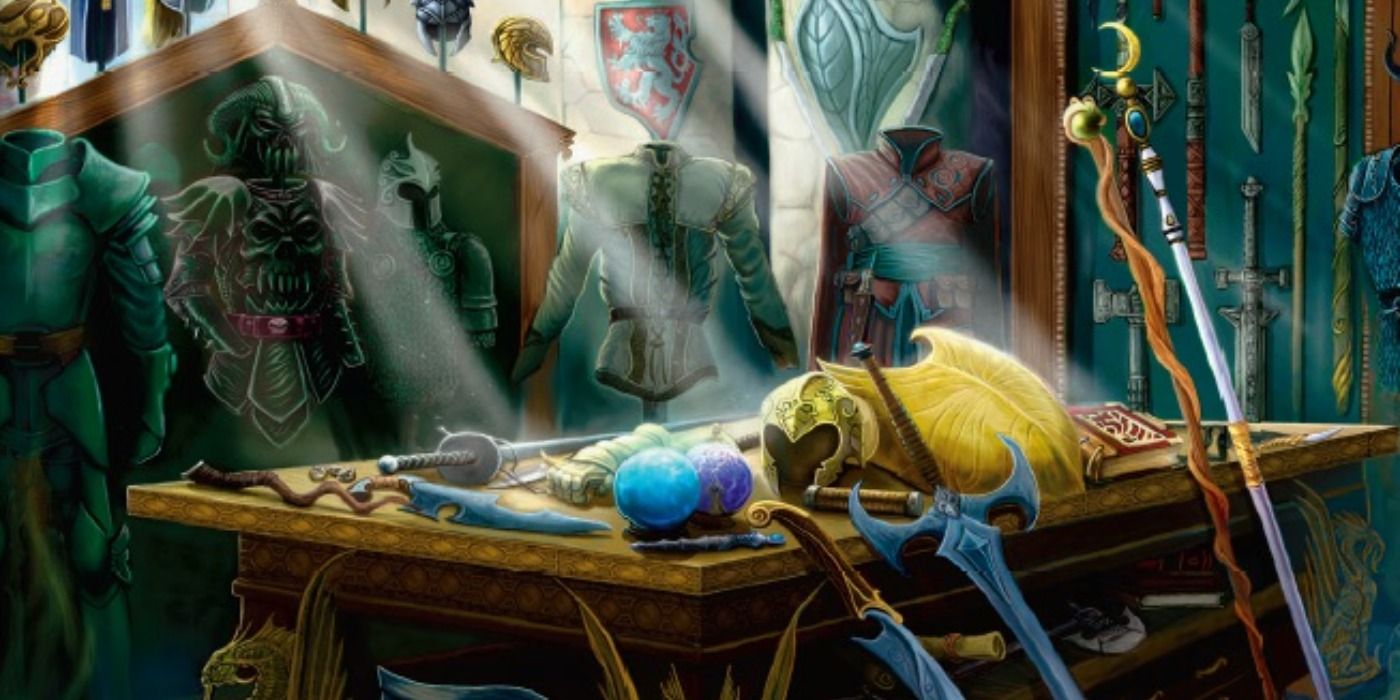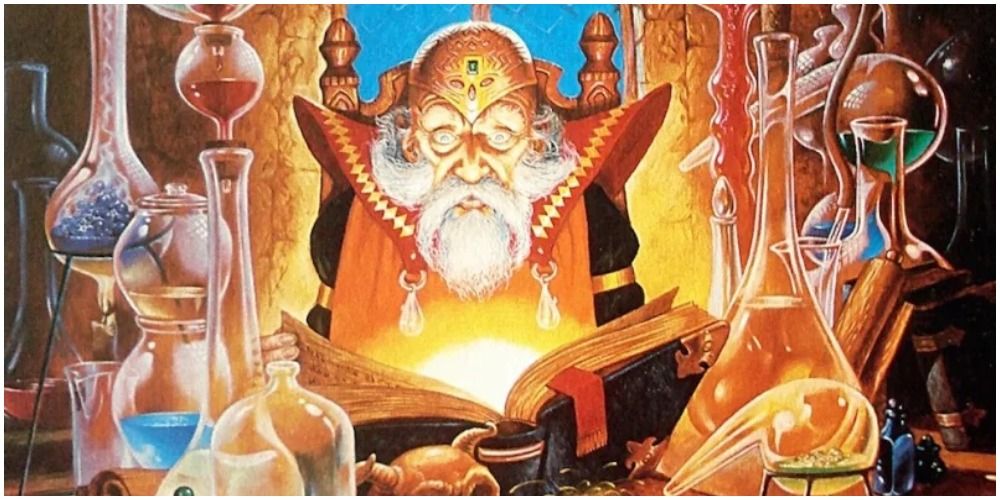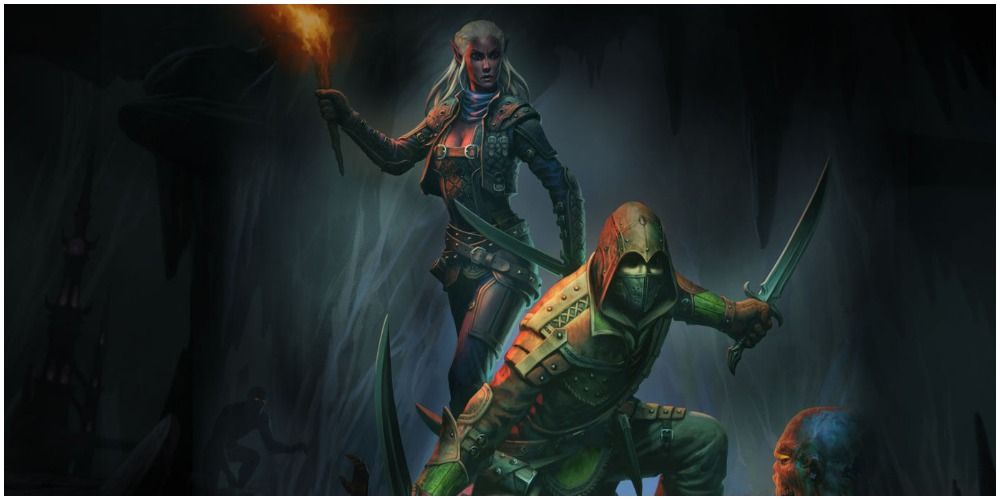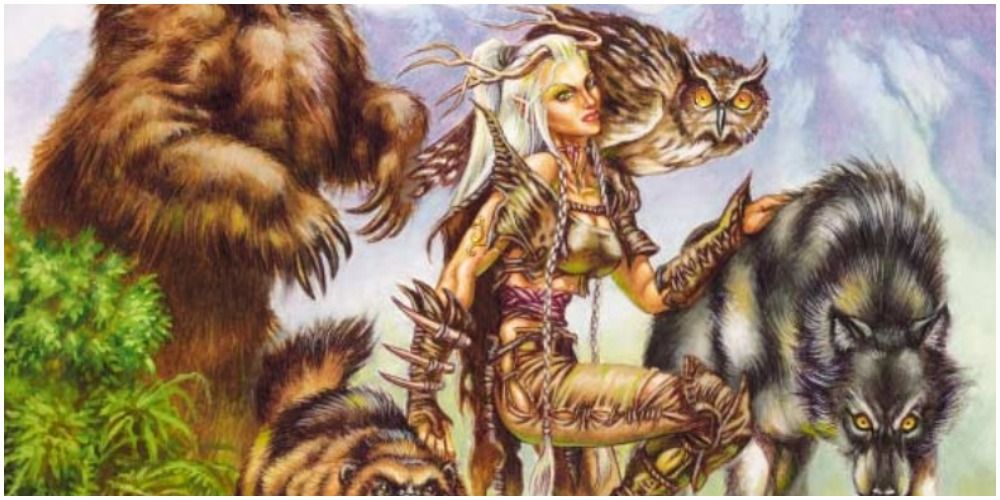A Dungeons & Dragons character doesn't need to go into battle in their pajamas, as they have starting equipment and gold that will help them prepare for their adventures. A character will usually have the correct armor and weapons at creation, giving them a fighting chance in battle and letting them use their abilities to the fullest. Even the average D&D character who doesn't abuse the gold system will have some cash leftover, which can be spent in a number of ways that will improve their chances of survival, or will make exploration easier.
One of the best aspects of D&D 5e is its treatment of starting gear. In the older editions of D&D, the player had starting gold that they had to spend on everything, which added a lot of unnecessary time to character creation, as players slowly stocked up on everything from blankets to weapons. In the 5e Player's Handbook, each class has a selection of starting items that they can select, which covers all of the items they will need. D&D 5e also added different pack-type items, such as the Scholar's Pack, which includes a number of the basic items that all characters will use, such as camping gear. A D&D character's background choice will also provide some starting gear and extra gold. These changes combined speed up the character creation process and make things a lot simpler for new players to roll up their hero without missing anything important in the process.
There is an optional variant rule in the 5e rule in the Player's Handbook, where the player can roll for their starting gold and buy everything from scratch. This means the player can potentially have less or more gold than the main method of selecting gear. It's usually better to just stick with the selection method and try and sell any items that won't be used, rather than risk not having enough gold to afford armor, weapons, a pack, any spellcasting items, or miscellaneous gear that will make adventuring easier. The players who have gold leftover can use it in a number of different ways, especially if they're willing to pool their resources together.
Pool Party Gold Together For A Potion Of Healing
One of the most useful items available in the Equipment section of the Player's Handbook is the Potion of Healing, which heals 2d4+2 points of damage. A single healing potion can save the party, especially in instances where there is only a single healer in the group, as the potion can be used to save them if they hit zero hit points, or are incapacitated and are unable to help someone else. The problem with buying a Potion of Healing is that they cost at least 50 gp, assuming the local stores even have them in stock. It's worth the group all pitching in to buy a single Potion of Healing, as one vial can be enough to save the party from ruin in a desperate situation.
Stock Up On Ball Bearings, Caltrops, & Oil
A first-level character can quickly burn through their special abilities in combat. D&D 5e is great for ensuring characters can always contribute, unlike the days of 3e, when spellcasters would quickly run out of spells and have to resort to using conventional weapons. A smart player will save their best abilities for when they're needed, rather than blowing them all on the first group of kobolds that show up. One way to become more efficient in combat is to stock up on some of the combat-focused items in the Player's Handbook which have a number of uses in battle.
A bag of 1000 ball bearings costs 1 gp, can cover a 10ft area on one side when poured, and forces the enemy to make a Dexterity saving throw against falling or prone, or forces them to move at half speed to avoid the saving throw. The ball bearings are great for slowing down pursuers, making it difficult for enemies when fighting in enclosed areas, and for causing D&D's invisible enemies to reveal their position. A bag of 20 caltrops also costs 1 gp, but it only covers a single square on one side.
The benefit of using caltrops over ball bearings is that they have a higher Dexterity saving throw to avoid their effect, which deals a point of piercing damage, stops them from moving any further that turn, and reduces their movement speed by 10ft until they are healed. A flask of oil can also be useful, as it costs 1 sp, can be used with a ranged attack to coat an enemy for one minute, which will make them take an additional five points of damage if they are struck by a fire attack. The oil can also be poured on the ground and lit, which can be used to lay traps for enemies or deter animals from pursuing the party. All of these items are great choices for players that need to get out of dodge and regroup, especially for their low price tag.
Buy A Trusty Donkey & Guard Dog
Even a low-level D&D party with a druid or a ranger might have access to some animal buddies that can help the party out, but the groups without a nature-loving companion might want to invest in some. A donkey only costs 8 gp and the saddlebags 4 gp, but it will soon pay for itself, as it can carry 420 lbs of items, which will free the party up from needing to carry anything heavy and weighing them down in combat. More importantly, a donkey can help the players take anything that isn't nailed down in the dungeon so that it can be sold later for a profit.
The party might also want to pool their resources and buy a mastiff for 25 gp. An untrained dog might not be much help in combat, but D&D 5e's Passive Perception rules mean that its smell ability gives it a strong chance of revealing any enemies that are tracking the party. A mastiff can be incredibly useful to keep around while camping, as its incredible sense of hearing and smell means that any Dungeons & Dragons monster will have a hard time approaching without waking the dog.




